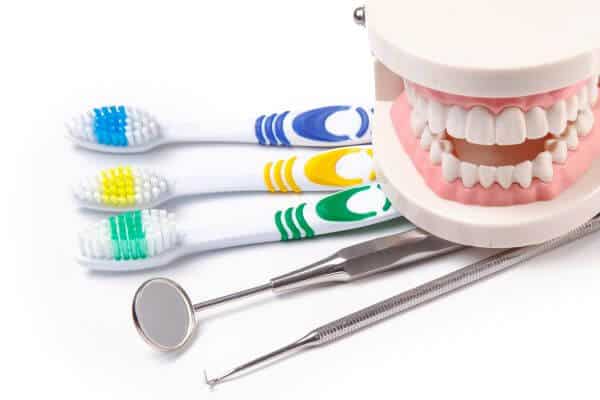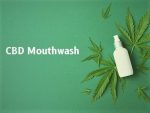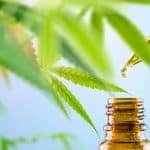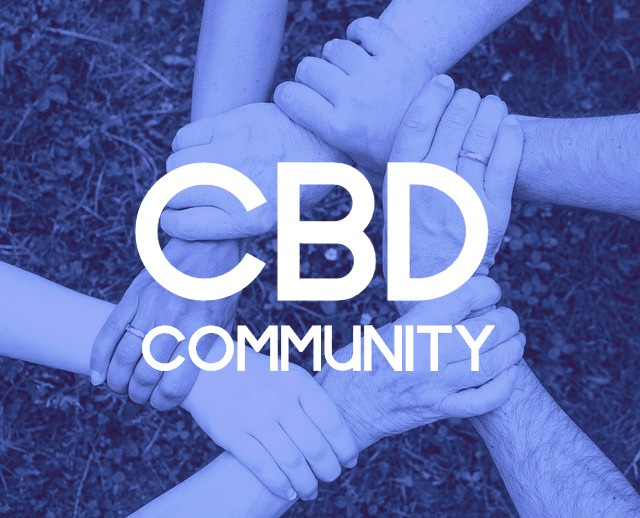Last updated on 13 July 2021
When did you last purchase a mouthwash? Do you know what it contains? Is it side-effect-free?
Mouthwash comes in handy to manage gum disease, reduce pain in gum, dental plaque, bacterial growth, dental cavity, and maintain oral hygiene.
Although we feel refreshed after using a mouthwash, the tingling burning sensation while using isn’t very pleasant. Alcohol and fluoride-containing mouthwashes kill good oral bacteria like probiotics and lactobacilli.
Continue reading to discover more about mouthwashes and the benefits of CBD / cannabinoids infused mouthwash.
Introduction
Gone are the days when people associated cannabis with just smoking and feeling euphoric. Changes in the legal landscape, increase in research funding and investments from biotech and pharma companies and expanded consumer awareness have transformed the overall value and market for cannabis-derived products.
However, the debate around the use of marijuana for medical and recreational purposes still prevails. On the positive side, the arguments have mellowed, and misconceptions are dissolving in the light of research conclusions and abundant anecdotal reports.
In particular, the non-psychoactive multifaceted compound CBD has blended into supplements, edibles, and cosmetic products. Moreover, the versatility of the cannabinoid has encouraged manufacturers to innovate and infuse CBD into the mainstream fast-moving consumer goods industry (FMCG). For the reason that CBD could be a natural alternative to the harmful chemicals used in many products.
We are quite familiar with mouth rinses infused with herbal extracts. Let us deep-dive into understanding what cannabinoid infusions in mouthwashes can offer. Are they any different from other over-the-counter mouthwashes? Is CBD-infused mouthwash a safer and effective alternative to fluoride-containing mouthwashes? Is it effective enough in killing oral bacteria? Let’s explore.
Top 3 uses of mouthwash
A 2016 study1 defines mouthwash as a medicated liquid that is held in the mouth and swished by the action of perioral musculature to eliminate oral pathogens.
Generally, we use a mouthwash to reduce bad breath. But it is always an addition to our other regular oral care routine (brushing and flossing). Because a toothbrush does not always reach all areas of the mouth or in between teeth. Comparatively, liquids (mouthwash) reach inaccessible areas and prevent the formation of dental caries and plaque.
Therefore some of the objectives of using mouthwash are:
- Protect the teeth, gums against bacteria
- Remove bad odors
- Prevent dental caries, infection
The American Dental Association (ADA) classifies two types of mouthwash: cosmetic and therapeutic.
Cosmetic mouthwash may help control bad breath temporarily, say for a short time, and give a pleasant taste. But its efficacy in killing bacteria or reducing dental plaque is not known. On the other hand, a therapeutic mouthwash contains active ingredients that help control or reduce conditions like bad breath, gingivitis, plaque, and tooth decay.
Therefore it is clear that the ingredients used in mouthwash are pivotal in delivering its effectiveness for treating oral diseases.

List of active ingredients in a mouthwash
Our ancestors have tried and tested several natural products (including human and animal urine) to whiten their teeth, reduce bad breath, or prevent oral diseases.
A 2016 meta-analysis1 cites some of the earliest use of products used as a mouth rinse. They include:
- salt,
- alum and vinegar mixture,
- dough water,
- olive oil, milk,
- wine and oil,
- pomegranate peelings,
- nutgalls, etc.
- Triphala (a combination of three herbs)
- basil leaves
- neem
- clove oil
- mint
- white oak bark,
- plantain leaf,
- aloe vera,
- myrrh gum
- Organic peppermint leaf and its essential oil
- tea tree essential oil, and more.
Anton van Leeuwenhoek (a Dutch businessman and the father of microbiology) discovered bacterial organisms deposited in his teeth. He experimented with them using brandy and noticed that these bacteria became inactive. Since then, the use of alcohol in mouthwash products commercially intensified.
A 2019 study2 brings to light the various active substances used in most commercially available mouthwashes.
- Cetyl pyridinium chloride
- Essential oils,
- Chlorhexidine,
- Triclosan,
- Natural products,
- Diclofenac,
- Fluorides,
- Delmopinol.
The 2011 study3 asserts that Chlorhexidine (identified in the 1960s) is regarded as the gold standard in antiplaque and antigingivitis agents and is the most potent to date.
Commercial VS Cannabinoids infused oral care products – A comparison
Let us consider references from two different in vitro studies from the same authors who have evaluated the efficacy of cannabinoids in mouthwash products.
- Preliminary study
- Randomized controlled trial
Firstly, the preliminary study4 compared the efficacy of cannabinoids versus commercial oral care products in reducing dental plaque and bacteria.
Plaque samples from 60 adults between 18-45 years were collected and grouped into six research groups. The number of bacterial colonies found in specimens that used commercial oral care products and cannabinoids were evaluated and compared.
The cannabinoids included in the study were CBD, cannabidiol; CBGA, cannabigerolic acid; CBG, cannabigerol; CBN, cannabinol; CBC, cannabichromene, and cannabite F (a toothpaste formulation of pomegranate and algae combined with active parts of cannabis)
Some of the key takeaways from this in vitro study (lab confined) are:
- Cannabinoids show potential antibacterial properties against dental plaque-associated bacteria and both gram-positive and gram-negative bacterial species.
- Compared to synthetic oral care products (Oral B and Colgate), cannabinoids are significantly effective in reducing the colony count of bacteria.
- The efficiency of cannabinoids could vary from individual to individual, owing to the microbial diversity of oral biofilms.
- Mouthwash products with cannabinoids infusion offer a safer alternative for synthetic antibiotics to reduce the development of drug resistance.
In all the six research groups, maximum bacterial growth was reported in Oral B, Colgate, and Cannabite F treatments. On the contrary, only a minimum number of bacterial colonies were observed in CBD, CBC, CBN, and CBGA treatments. Among all the cannabinoids, CBN and CBC were effective in several research groups.
Secondly, the randomized controlled trial5 compares the efficiency of cannabinoid-infused mouthwashes with the gold standard chlorhexidine antiplaque agent. The in vitro results demonstrate the potential of cannabinoids in developing efficient and safer mouthwash products and next-generation oral care products without fluoride and alcohol.
Key takeaways from the study:
- Dental plaque samples collected from 72 adults aged between 18 and 83 years were used in the study.
- Two mouthwash products were tested against chlorhexidine, for its efficiency in killing bacteria. One was infused with cannabidiol (CBD) and the other with cannabigerol (CBG). Both showed efficiency equivalent to chlorhexidine. In other words, both cannabinoids infused mouthwash products and chlorhexidine 0.2% were effective against all samples tested.
- In some samples, CBD mouthwash and CBG mouthwash performance in inhibiting bacterial growth were statistically significant than chlorhexidine 0.2%.
- CBG, CBD, CBN, CBC have antibacterial activity against gram-positive and gram-negative bacteria.
- CBD strongly inhibits blister formations and bulging in the outer membranes and enhances the efficiency of antibiotics in bactericidal activity.
Side effects of using fluoride or alcohol mouthwash
The 2020 study5 points out some of the side effects of using mouthwash.
- Mouthwash products contain fluoride, alcohol, cetylpyridinium chloride (CPC), or extremely low pH (acidity/ alkalinity).
- Due to very low pH, the saliva retains the fluoride after a single use and erodes the dentin (one of the four major components of the teeth).
- Although mouthwash containing chlorhexidine is most effective, tooth staining is an unacceptable side effect. Hence, it may be suitable for a short prescribed period of use, as advised by your dentist but not for everyday or frequent use. Moreover, if an anti-discoloration system was added to chlorhexidine, it lost its efficiency.
- The study points out that 12 mouth rinse products exhibit high cytotoxicity (toxic to cells) and lack antimicrobial properties.
To summarize, herbal mouthwashes containing aloe vera, neem, and cannabinoids demonstrate the potential to replace chlorhexidine. The only thing they lack is sufficient scientific evidence. Therefore cannabinoids (CBD/ CBG) infused mouthwashes combined with other natural key ingredients are alcohol-free and do not cause discoloration, hence an efficient mouthwash product.

Oral health benefits
- The WHO estimates that oral diseases affect nearly 3.5 billion people globally.
- A recent study6 restates statistics from the global disease burden study that periodontal diseases rank 11th among the prevalent diseases in the world.
Therefore, undeniably oral health is an essential part of general health and overall well-being. Most people perceive that a problem in the teeth or gum concerns only the mouth. But human anatomy is such a complex interconnected structure that a weakness in one area impacts the other parts of the body too.
- A 2008 study7 points out that oral diseases are associated with diabetes mellitus, and periodontitis affects most people with diabetes.
- A 2013 study8 indicates that 84.4% of individuals with cardiovascular disease (CVD) had periodontal disease compared to only 22.5% of individuals without CVD.
- In our previous post on how to use CBD oil for erectile dysfunction? We discussed that chronic periodontitis (CP) and erectile dysfunction (ED) share common risk factors and lead to endothelial dysfunction. Therefore men with mild to severe ED showed a higher prevalence of CP.
- Besides cardiovascular disorders, a 2000 study9 points out that bacteria causes infection spread from the oral cavity, injury from circulating microbial toxins, inflammation and immunological injury due to oral microorganisms and bacterial pneumonia.
- Lifestyle habits such as consuming a diet high in sugar, tobacco use, long-term use of coffee, tea, betel (Piper betel), alcohol, and high acid beverages could lead to the development of dental plaque, tooth decay and causes tooth discoloration,
On the whole, unacceptable levels of mucosal irritations, teeth staining, alteration in taste, and skin peeling are commonly reported side effects from the use of commercially available toothpaste and mouthwash products and they are not effective in killing bacteria. Nevertheless, it is essential to realize that most oral health conditions are preventable and treatable. Provided we use appropriate and safe oral health care products: toothpaste, toothbrush, tongue cleaner, mouthwash, and floss.
Role of the Endocannabinoid system in oral health
- According to the 2018 study,10 cannabinoids could be effective novel drugs in periodontal therapy as well as in improving oral health. In particular, the endocannabinoid levels in the CB2 receptors increase during inflammation and cannabinoids could inhibit this inflammatory response.
- Similarly, the 2019 study11 also acknowledges the prevalence of CB1 and CB2 receptors in periodontal tissues in different patterns. And the effect of cannabinoids was mainly dependent on CB2 receptors. The conclusions of this study recognize that cannabinoids may contribute to new therapeutics for periodontal regeneration and wound healing.
- A recent study12 asserts that THC and CBD are bacteriostatic as well as bactericidal against a panel of gram-positive pathogens. Including Methicillin-resistant Staphylococcus aureus (MRSA).
- Moreover, endocannabinoids exhibit characteristics effective enough in eradicating biofilms. The report adds the cannabinoids found in cannabis Sativa, but its terpenes also show promising antimicrobial activities.
5 points to keep in mind when you choose a mouthwash
- As discussed, there are plenty of over-the-counter mouthwash products for cosmetic use. But, in most cases, dentists prescribe therapeutic mouthwashes after examining your oral hygiene. Again, remember to use them only during the prescriptive period.
- Prolonged use of alcohol and fluoride-containing products could lead to oral cancer.
- Chlorhexidine mouthwashes are effective in gum diseases and plaque but cause teeth staining and taste altering.
- Existing drugs are not effective enough in destroying rapidly developing bacteria and viruses. Cannabinoids present a novel opportunity as a potential new source of antibiotics.
- There is no substitute for brushing twice a day, flossing, and rinsing to avoid bad breath and reduce bacterial growth. Hence, maintaining oral hygiene is a mandatory lifelong practice.
References
- Manipal S, Hussain S, Wadgave U, Duraiswamy P, Ravi K. The Mouthwash War – Chlorhexidine vs. Herbal Mouth Rinses: A Meta-Analysis. J Clin Diagn Res. 2016;10(5):ZC81-ZC83. doi:10.7860/JCDR/2016/16578.7815 [↩] [↩]
- Tartaglia GM, Tadakamadla SK, Connelly ST, Sforza C, Martín C. Adverse events associated with home use of mouthrinses: a systematic review. Ther Adv Drug Saf. 2019;10:2042098619854881. Published 2019 Sep 23. doi:10.1177/2042098619854881 [↩]
- Mathur, Setu & Mathur, Tanu & Srivastava, Rahul & Khatri, Rohit. (2011). Chlorhexidine: The Gold Standard in Chemical Plaque Control. National Journal of Physiology, Pharmacy and Pharmacology.1 [↩]
- Stahl V, Vasudevan K. Comparison of Efficacy of Cannabinoids versus Commercial Oral Care Products in Reducing Bacterial Content from Dental Plaque: A Preliminary Observation. Cureus. 2020;12(1):e6809. Published 2020 Jan 29. doi:10.7759/cureus.6809 [↩]
- Vasudevan, K., Stahl, V. Cannabinoids infused mouthwash products are as effective as chlorhexidine on inhibition of total-culturable bacterial content in dental plaque samples. J Cannabis Res 2, 20 (2020). https://doi.org/10.1186/s42238-020-00027-z [↩] [↩]
- Ko T-J, Byrd KM, Kim SA. The Chairside Periodontal Diagnostic Toolkit: Past, Present, and Future. Diagnostics. 2021; 11(6):932. [↩]
- Lamster, Ira & Lalla, Evanthia & Borgnakke, Wenche & Taylor, George (2008) The Relationship Between Oral Health and Diabetes Mellitus. Journal of the American Dental Association, 139 Suppl. 19S-24S. [↩]
- Najafipour H, Malek Mohammadi T, Rahim F, Haghdoost AA, Shadkam M, Afshari M. Association of oral health and cardiovascular disease risk factors “results from a community based study on 5900 adult subjects”. ISRN Cardiol. 2013;2013:782126. Published 2013 Jul 9. doi:10.1155/2013/782126 [↩]
- Li X, Kolltveit KM, Tronstad L, Olsen I. Systemic diseases caused by oral infection. Clin Microbiol Rev. 2000;13(4):547-558. doi:10.1128/CMR.13.4.547 [↩]
- Abidi AH, Presley CS, Dabbous M, Tipton DA, Mustafa SM, Moore BM 2nd. Anti-inflammatory activity of cannabinoid receptor 2 ligands in primary hPDL fibroblasts. Arch Oral Biol. 2018;87:79-85. doi:10.1016/j.archoralbio.2017.12.005 [↩]
- 6. Liu C, Qi X, Alhabeil J, Lu H, Zhou Z. Activation of cannabinoid receptors promote periodontal cell adhesion and migration. J Clin Periodontol. 2019;46(12):1264-1272. doi:10.1111/jcpe.13190 [↩]
- 7.Karas JA, Wong LJM, Paulin OKA, et al. The Antimicrobial Activity of Cannabinoids. Antibiotics (Basel). 2020;9(7):406. Published 2020 Jul 13. doi:10.3390/antibiotics9070406 [↩]
Author
With close to two decades of successful stint in the Media industry, I felt I was surely missing a piece in my life puzzle. I took a break and set out to seek the purpose of my life. I travelled, lived out of a suitcase, let things flow into life without resisting, and after five challenging years, I found my rhythm. I love to write about Cannabis and Health and try my best to simplify esoteric concepts into simple ideas for life.







